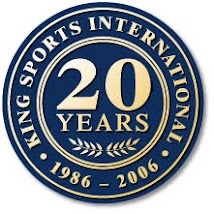I spent the morning watching a sporting team that contained I estimated about 50% imports. At least half the team members were not there the year before, and my understanding is that their arrival was through the usual channels – a financial incentive.
In sport many choose the path of attempting to buy success through purchasing players from out side their usual feeder programs.
My first professional sporting team that hired me in the 1980s produced their own athletic stock, drawing from their geographical area. It was extremely successful, rated the best program in the world as measured by the scoreboard and the trophy cabinet.
My first personal professional experience of this was in the late 1980s with a team in the National Basketball League (NBL) in Australia. There was a two import limit, which made for a reasonably even playing field. And the numbers being lower meant the impact on what I believe is the most important criteria for success – culture – was relatively contained.
My next exposure was with a new start up franchise in the Australia Football League (AFL) national competition. As the team was new it was made up of 100% imports. This was a massive learning experience and the record books show it was not successful for the first five years on the scoreboard, which is the usual outcome in similar situations.
I have watched many professional teams seek to ‘buy’ championships. Has it worked? I suggest the odds are low. My conclusion after 30+ years of studying what it takes to succeed in sport is that you don’t buy success.
In the wise words of the late great American business philosopher Jim Rohn, ‘for things to change, you must change.’ And I don’t see the purchase of talented players synonymous with the change Jim Rohn was referring to.
The team I was watching this morning came from a recent historical culture of about 27% win loss success ratio. Will this statistic suddenly and significantly change with the importing of players? Most likely. Has anything else changed in the culture? I doubt it has. Will any long term lessons be taken away? I doubt it.
I suggest the main impact long term will be a negative one on the culture, as the values of all shift towards the true values of the decision to import – that money is the highest value in the team culture. That you don’t have to change or work or become something – you just buy it. That there is little value in working in and with the system towards self-improvement because when better is wanted, it will be bought.
Do I believe it is wise or desirable to buy success through recruiting? No. The fundamental messages are I believe inappropriate. The young up and coming athletes in the feeder program loose faith in their future in that environment, and lack of commitment and lack of loyalty to the program are fed. The athletes in the program conclude that all they need to do if they are in a hole is to pay their way out of it.
Do you remember the first pro team I worked with during the 1980s which was one of the best in the world in its space? Well I watched that team try to buy success through importing, as they slid to the ranking of the worst team in their southern hemisphere competition. The impact went far beyond the scoreboard on the day. The drain of disillusioned young athletes from their feeder program to other programs became the major source of complaint and reason provided for lack of success by this very team during the ensuing years. Ironic, because they created that problem.
I do however endorse a culture that builds over time to greatness, nurturing and taking responsibility for those in their feeder systems. Where athletes trust the system to support and nurture them, where they know all have the same vested interest in their success. Where they are taught by their role models that greatest can be achieved if you are committed to developing yourself.
And to add a further element, the average age in this sporting team I referred to in the above example was 13 yrs of age…..At this rate we can expect professional importing to dominant in primary school sport within the next decade.
I overheard one of the young athletes enthuse to the coach “Wow, no wonder they are in the A team” referring to the superior performance of his new team mate had pushed him to the sidelines. To which the coach replied “Well you can get there too if you work hard.” To which I mentally replied “Well actually no - there is no evidence at this stage that these imports possess their domiant traits due to hard work. There is the element of genetics, foreign culture upbringing, early maturation etc etc.”
Subscribe to:
Post Comments (Atom)




No comments:
Post a Comment